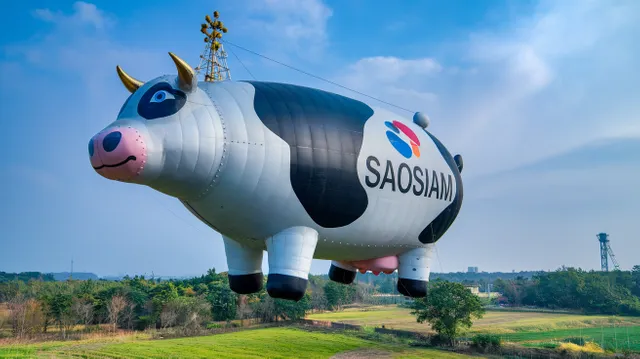Tea Culture Worldwide: A Journey Through the Global Love for Tea
Tea is more than just a drink; it is a universal language of comfort, hospitality, and tradition. Across continents and cultures, this beloved beverage has woven itself into the fabric of daily life, ceremonies, and social gatherings. Let’s take a journey around the world to explore the rich and diverse tea cultures that unite humanity.
- The Art of Japanese Tea Ceremonies
In Japan, tea is not just consumed; it is celebrated as an art form. The Japanese tea ceremony, or chanoyu, is a meticulous ritual steeped in history. At the heart of this tradition is matcha, a finely powdered green tea, prepared with precision and mindfulness.
The tea ceremony emphasizes four principles: harmony (wa), respect (kei), purity (sei), and tranquility (jaku). Guests participate in this serene experience, appreciating the aesthetics of the tea-making process, from the whisking of the matcha to the carefully chosen tea utensils. It’s a meditative practice that transcends the act of drinking tea.
- British Afternoon Tea: A Quintessential Tradition
In the UK, tea is synonymous with tradition and elegance. Afternoon tea, introduced in the 19th century by Anna, the Duchess of Bedford, is a classic example of this cultural staple. Served with finger sandwiches, scones, and pastries, it is a refined experience often enjoyed in lavish settings.
Black tea varieties like Earl Grey or Darjeeling are commonly served, accompanied by milk and sugar. Whether it’s a formal occasion or a casual break, tea in Britain represents warmth, hospitality, and a touch of sophistication.
- Chinese Tea Culture: A Historical Legacy
China, the birthplace of tea, boasts a tea culture that dates back thousands of years. From green and black teas to oolong and pu-erh, the variety is unmatched. Tea is deeply rooted in Chinese philosophy, medicine, and daily life.
One of the most iconic traditions is gongfu cha, which translates to “making tea with skill.” This practice involves a series of precise steps to brew tea, highlighting its flavor, aroma, and texture. In Chinese culture, tea is also a symbol of respect, often served to elders or guests as a gesture of honor.
- India: The Land of Chai
India’s tea culture is vibrant and diverse, with chai being a household favorite. This spiced tea is made by boiling black tea leaves with milk, sugar, and aromatic spices like cardamom, cinnamon, ginger, and cloves. Chai is not just a drink but a way of life, sold at roadside stalls (chaiwallahs) and served in every home.
In addition to chai, India is renowned for its tea-growing regions, such as Assam, Darjeeling, and Nilgiri, producing some of the finest teas enjoyed worldwide.
- Moroccan Mint Tea: A Symbol of Hospitality
In Morocco, tea is a gesture of warmth and hospitality. Moroccan mint tea, a blend of green tea, fresh mint leaves, and sugar, is traditionally prepared and served by the host. The pouring of the tea, often done from a height to create froth, is as much a part of the experience as drinking it.
Served in ornate glasses, this sweet and refreshing tea is enjoyed throughout the day, offering a sense of community and connection.
- Turkish Tea: A Social Staple
In Turkey, tea (çay) is a cornerstone of social life. Served in small tulip-shaped glasses, Turkish tea is strong, dark, and often sweetened with sugar. It is brewed using a two-tiered teapot called a çaydanlık, ensuring a robust flavor.
Tea is an integral part of Turkish hospitality, often accompanied by lively conversations, whether in homes, cafes, or tea gardens.
- South African Rooibos: A Unique Herbal Brew
In South Africa, rooibos tea stands out as a caffeine-free alternative to traditional teas. Derived from the leaves of the rooibos plant, this herbal tea has a naturally sweet and nutty flavor. Known for its health benefits, including high antioxidant content, rooibos is enjoyed both hot and iced.
It’s a symbol of South African heritage and a favorite among health-conscious tea drinkers worldwide.
In Conclusion

From the meditative tea ceremonies of Japan to the social gatherings in Turkey, tea is a unifying force across cultures. Its ability to adapt to local customs while maintaining its essence makes it a truly global phenomenon. Whether you sip on a delicate green tea, a robust black tea, or a spiced chai, you are partaking in a tradition that transcends borders and brings people together.
Next time you brew a cup, take a moment to appreciate the history, artistry, and connection behind it. Tea isn’t just a drink; it’s a celebration of culture, community, and comfort.
#TeaLovers #BenefitsOfTea #HealthyLiving #TeaTime #TeaAddict #Antioxidants
#HealthyLifestyle #WellnessJourney #MindfulLiving #NaturalRemedies
#GreenTeaBenefits #HerbalTeaLover #BlackTeaLove #OolongTea #ChamomileTea
#SustainableLiving #TeaCulture #EcoFriendlyTea #TeaCeremony #TeaTraditions
#saosiamfood #saosiam info from blog https://www.saosiam.org/blog/benefitsoftea
